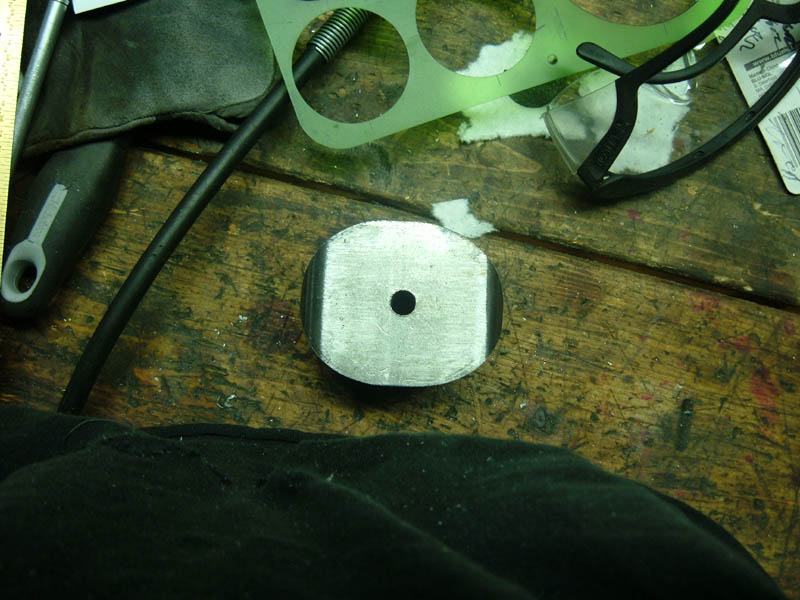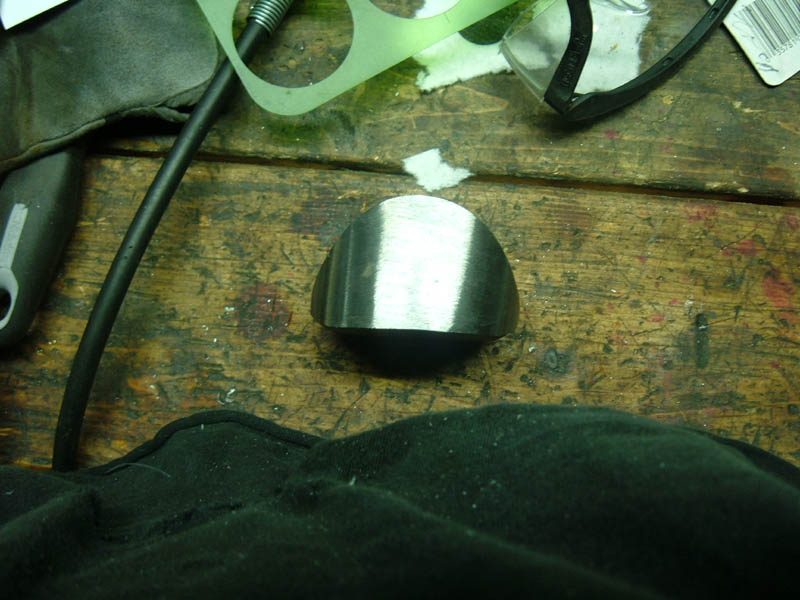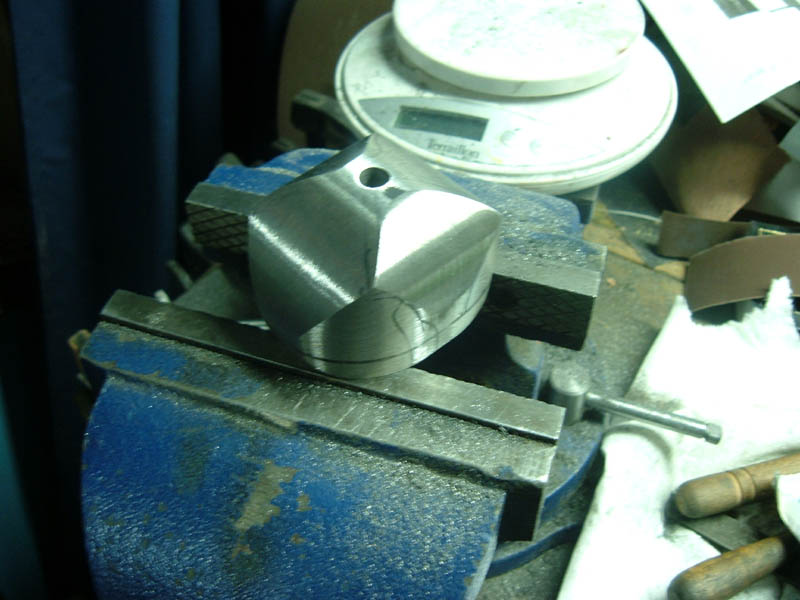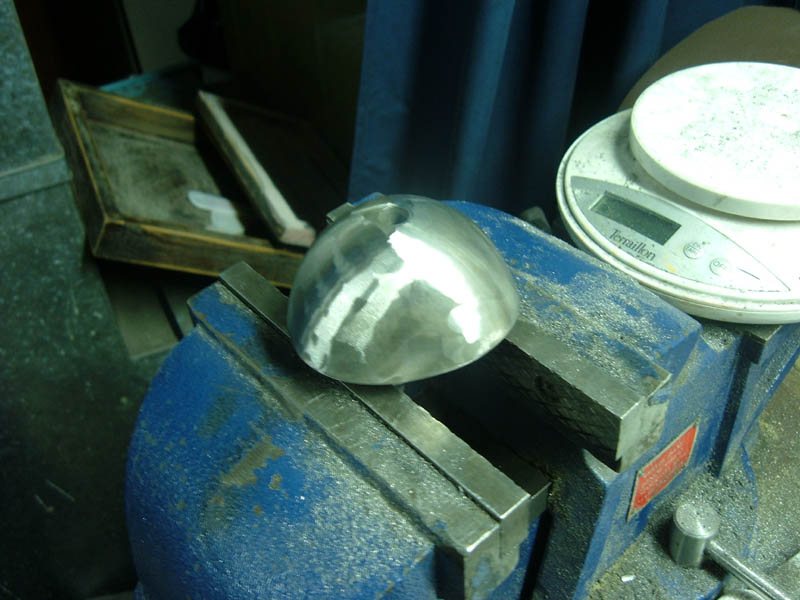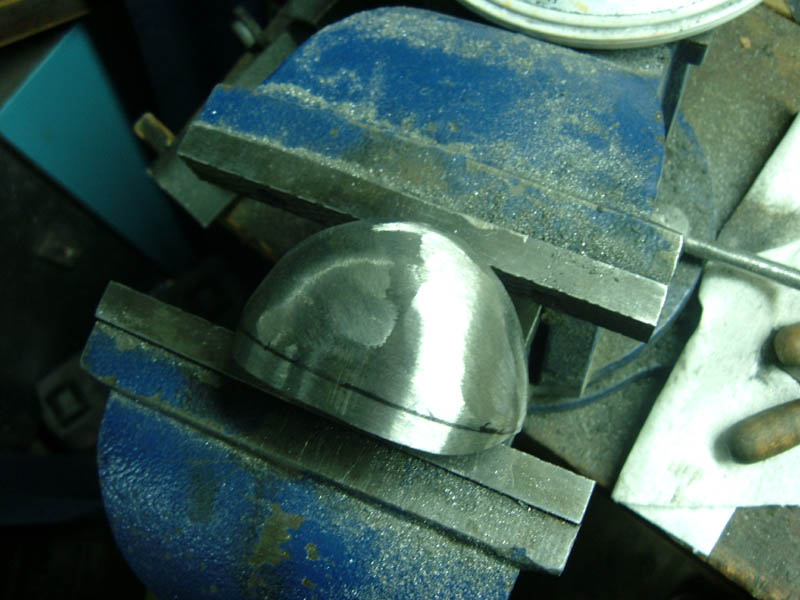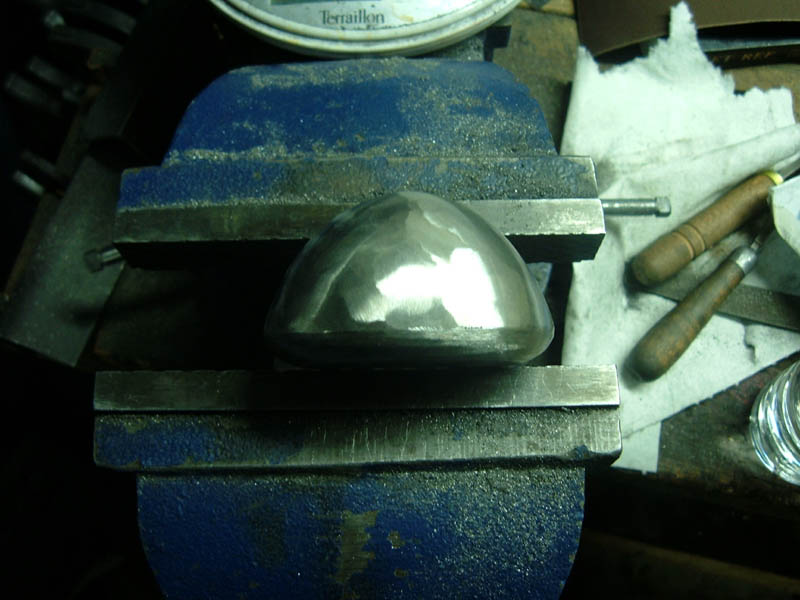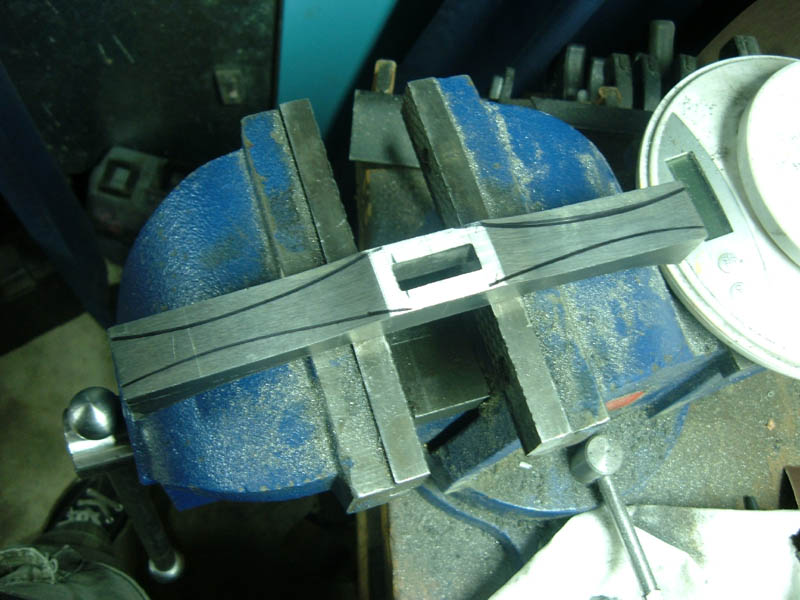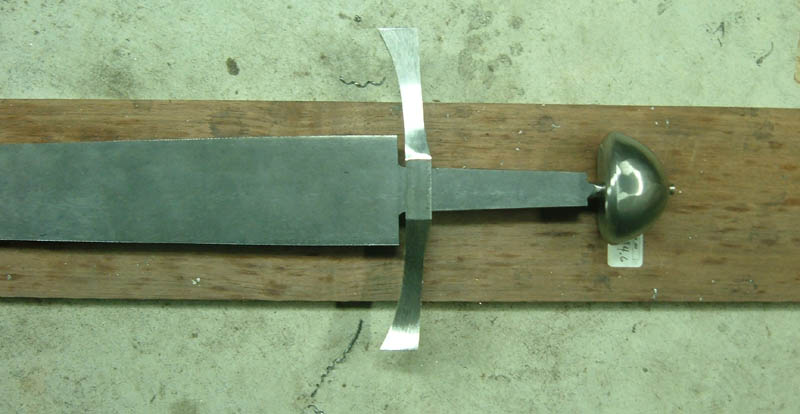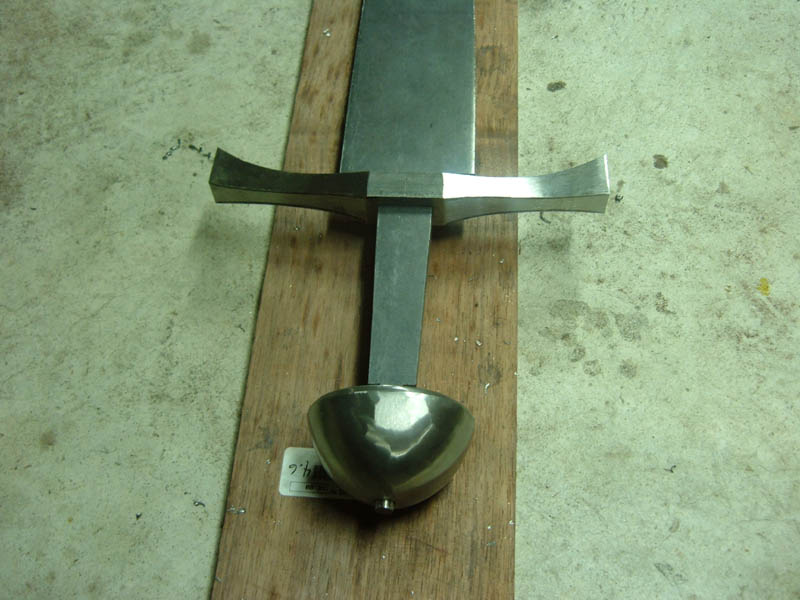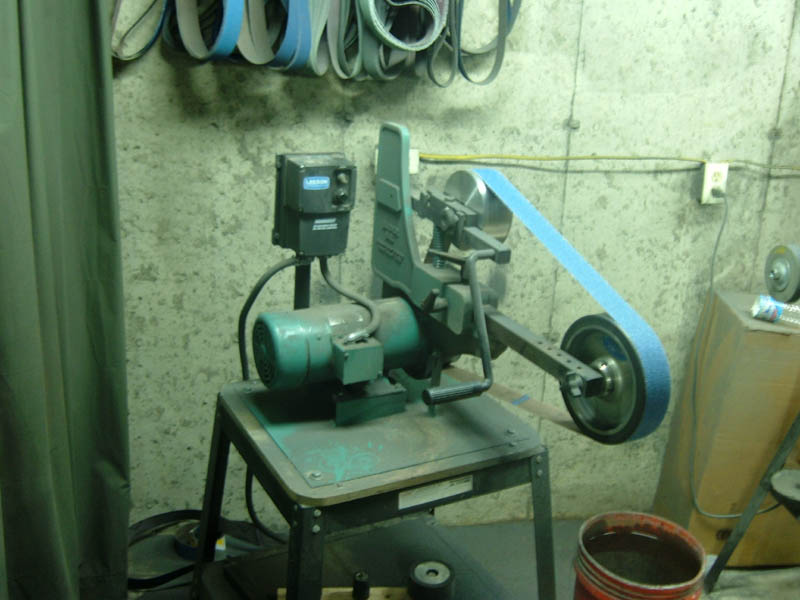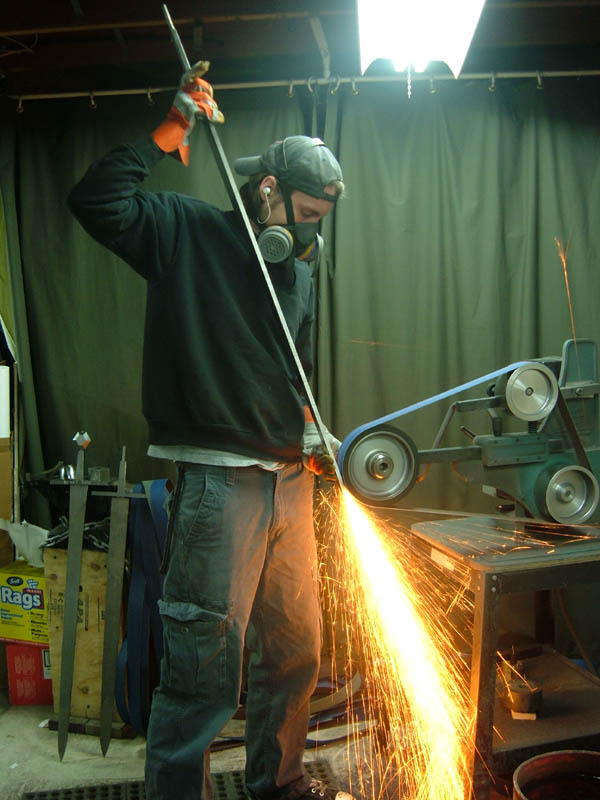| Vincent Le Chevalier wrote: |
| I tend to consider that weight is not that important for handling but within certain limits of what your body can do. At 2X or 3X the weight of a "normal" sword you are indeed aiming high ;)
|
Well I'm hoping that it will be a lot closer to 2X than 3X: It all depends on how much material will be taken off with hollow grinding and the deep fuller as well as the distal taper.
Within reason, handling is more critical than just the total weight: Moving the POB an inch or two either way should have more impact on handling than an increase or decrease of weight as long as we are not talking multiple pounds.
The profiled pommel stock is thick enough and I assume heavy enough that Mark should have enough there that the fatness or thinness of the pommel ( Total mass ) will give some range to make adjustment as well.
It's just that at the early stages it looks REAL heavy. ;) :lol: I have a lot of confidence that Mark will be able to get as close to good handling as is possible with the design he has to deal with.
( I might still want an extra 20 pounds of muscle though. ;) :lol: )
